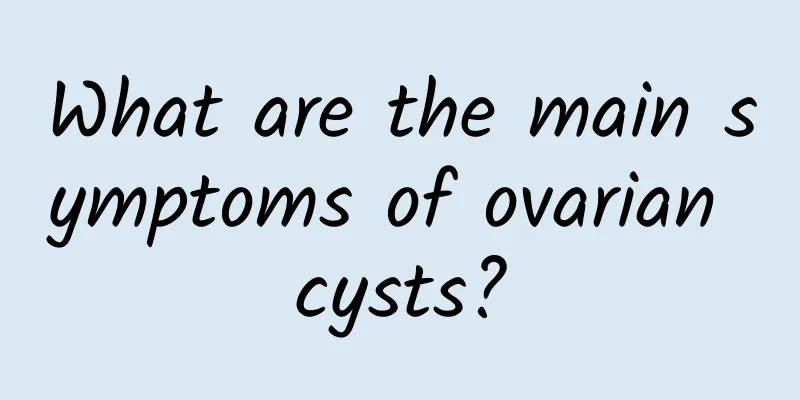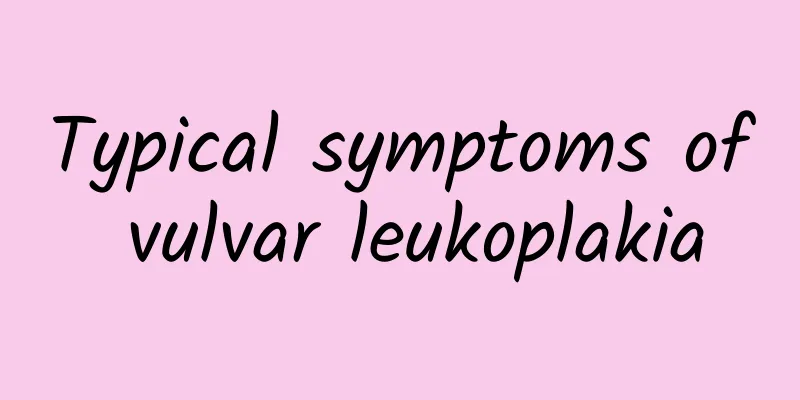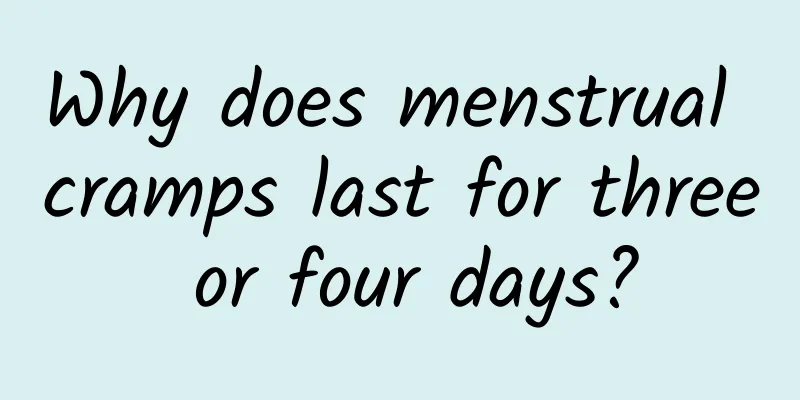What are the main symptoms of ovarian cysts?

|
Ovarian cysts are a common gynecological disease in women, and they are also more difficult to treat. Therefore, in order to prevent the condition from getting worse, it is necessary to detect the symptoms of ovarian cysts early and cure them as soon as possible. Next, let's take a look at the specific manifestations of ovarian cysts. 1. Lower abdominal distension and pain is the initial symptom of ovarian cyst patients before the lower abdominal mass is felt. Due to the weight of the tumor itself and the influence of intestinal and body position changes, the tumor moves the pelvic infundibulum ligament in the pelvic cavity, so that patients with ovarian cysts have a feeling of distension and falling in the lower abdomen or iliac fossa. 2. Menstrual disorders are also one of the symptoms of ovarian cysts. Generally, ovarian cysts, even bilateral ovarian cysts, do not destroy all normal ovarian tissues, so most of them do not cause menstrual disorders. Some uterine bleeding is not endocrine, but caused by endometrial congestion; or it is caused by the direct metastasis of ovarian cysts to the endometrium. The most common symptoms of ovarian cysts are enlarged abdominal circumference and abdominal swelling. Ovarian cyst patients find that their clothes or belts are too tight, and they just notice that their abdomen is enlarged, or they feel it accidentally in the morning, so they press their abdomen and find that there is a swelling in the abdomen, plus abdominal distension and discomfort. Compression symptoms Huge ovarian tumors can cause dyspnea and palpitations due to compression of the diaphragm. Ovarian tumors combined with a large amount of ascites can also cause this ovarian cyst symptom; but some ovarian tumor patients' dyspnea is caused by unilateral or bilateral pleural effusion, and often combined with ascites. Huge benign ovarian cysts fill the entire abdominal cavity, increasing intra-abdominal pressure, affecting the venous return of the lower limbs, and can cause edema of the abdominal wall and bilateral lower limbs; while malignant ovarian cysts fixed in the pelvic cavity compress the iliac vein, often causing edema of one lower limb. The above are the specific symptoms of ovarian cysts for your reference only. If the above symptoms occur, you must go to the hospital in time to check whether you have ovarian cysts. Do not delay to avoid delaying the disease. If you have other questions about ovarian cysts, you can contact our online experts to answer your questions. Ovarian cysts http://www..com.cn/fuke/ncnn/ |
<<: What are the early symptoms of ectopic pregnancy?
>>: What are the dangers of ovarian cysts to women?
Recommend
Analysis: Treatment of vulvar leukoplakia
Vulvar leukoplakia is a gynecological disease. Vu...
A female college student's feet became thicker and her belly became bigger, and she thought she was getting fat! It turned out to be lupus erythematosus that caused renal failure, causing edema and dialysis to save his life
If your feet become thicker and your belly become...
The most obvious symptoms of intrauterine adhesions
Intrauterine adhesions do not have the most obvio...
The early symptoms of vulvar leukoplakia are often accompanied by different itching
At present, vulvar leukoplakia has a great impact...
Precautions for negative pressure aspiration during abortion
Vacuum aspiration can be performed under local or...
How can women prevent cervical erosion? Seven key points to remember when preventing cervical erosion
Cervical erosion is the most common gynecological...
What tests should be done for vulvar leukoplakia
Treatment without examination is unscientific and...
Can’t eat carbohydrates to lose weight? Japanese nutritionist reveals: Eating "rice" like this can help burn fat
Why do some people refuse to eat rice, starch, an...
6 benefits of eating pumpkin with skin and seeds to help lose weight
The star food of Halloween is none other than pum...
How much does it cost to have an abortion in Shenzhen?
Girls today can get a lot of knowledge from the I...
Where is the best place to treat vulvar itching?
Vulvar itching is a common phenomenon among femal...
Fruit weight loss depends on your body type. Watermelon is good for cooling off, but don't eat it to get fat.
In the scorching summer sun, juicy and cooling fr...
What is the cure rate of chocolate cysts? What are the methods for treating chocolate cysts?
What is the cure rate of chocolate cysts? What ar...
Is surgery necessary for uterine fibroids 75mm?
Is surgery necessary for uterine fibroids 75mm? U...
How to effectively prevent female vaginitis?
Many women do not have enough knowledge about vag...









